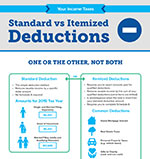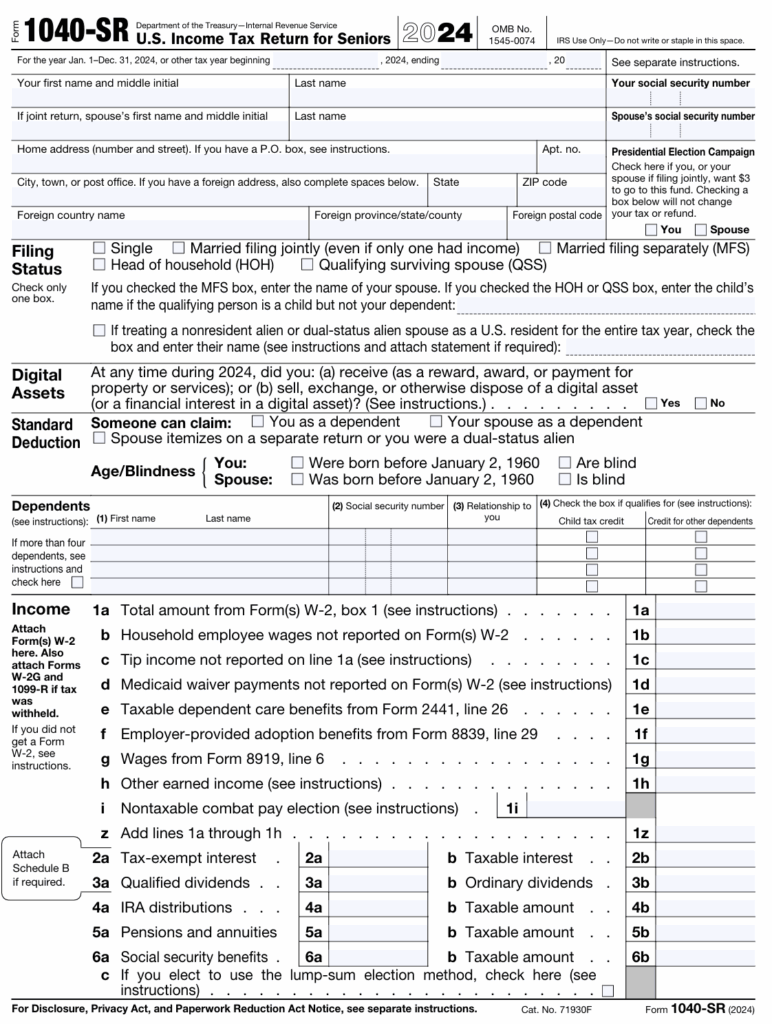Understanding the Foreign Earned Income Exclusion and Its Effect On Your Basic Reduction
The Foreign Earned Income Exclusion (FEIE) offers considerable advantages for expatriates, allowing them to exclude a part of their foreign-earned income from united state taxes. Nonetheless, asserting the FEIE can complicate one's tax obligation situation, particularly concerning the basic deduction. Comprehending this communication is essential for people living abroad. As expatriates browse these intricacies, they must take into consideration just how their choices affect their total tax obligation responsibility. What approaches can they utilize to maximize their financial outcomes?
What Is the Foreign Earned Income Exemption (FEIE)?
The Foreign Earned Earnings Exclusion (FEIE) functions as a crucial tax obligation benefit for united state citizens and resident aliens working abroad. This provision allows qualified individuals to exclude a substantial section of their foreign-earned income from united state taxes, effectively decreasing their overall tax obligation problem. The FEIE aims to alleviate the monetary stress on migrants and motivates Americans to go after job opportunity in international markets. The exclusion applies to wages, salaries, and expert fees earned while living in an international nation. The optimal exemption amount is adjusted every year for rising cost of living, making certain that it continues to be appropriate to present economic problems. By making use of the FEIE, expatriates can preserve more of their earnings, cultivating financial stability while living overseas. Overall, the FEIE plays an important function fit the financial landscape for Americans abroad, helping with a smoother change to international workplace and advertising financial interaction on a global range.
Eligibility Requirements for the FEIE
Eligibility for the Foreign Earned Income Exclusion (FEIE) rests upon conference certain standards set by the Internal Profits Solution (INTERNAL REVENUE SERVICE) Largely, people have to be united state residents or resident aliens who make income while residing in a foreign nation. To qualify, they should satisfy one of 2 main examinations: the Physical Existence Examination or the Bona Fide Residence Test.
The Physical Presence Test requires individuals to be literally present in an international country for at least 330 full days within a 12-month period - FEIE Standard Deduction. Alternatively, the Authentic Home Examination requires that individuals establish residency in a foreign country for a nonstop period that consists of an entire tax obligation year
Additionally, the income needs to be obtained from personal services executed in the international country. Satisfying these needs permits taxpayers to omit a substantial part of their foreign-earned income from united state taxation, thus minimizing their total tax liability.
How to Claim the FEIE

To start the process, individuals must gather documents that confirm their foreign earnings, such as pay stubs, tax obligation returns from international countries, and any pertinent employment agreement. It is essential to guarantee all income declared under the FEIE is earned from foreign resources and satisfies the called for limits.
Additionally, taxpayers have to consider filing due dates and any type of feasible extensions. Declaring the FEIE correctly not just assists in lessening tax obligation obligation however additionally assures conformity with IRS laws. Proper documents and adherence to standards are crucial for a successful claim of the Foreign Earned Earnings Exemption.
The Communication In Between FEIE and Basic Deduction
The interaction between the Foreign Earned Revenue Exclusion (FEIE) and the common reduction is a vital element of tax planning for migrants. Comprehending the basic principles of FEIE, together with the constraints of the conventional reduction, can significantly impact tax filing approaches. This area will certainly explore these elements and their implications for taxpayers living abroad.
FEIE Essentials Described
While numerous migrants look for to decrease their tax obligation concern, understanding the communication between the Foreign Earned Income Exemption (FEIE) and the common reduction is important. The FEIE permits united state citizens and resident aliens living abroad to omit a certain amount of foreign gained earnings from united state taxes. This exclusion can substantially decrease gross income, possibly impacting qualification for other deductions, such as the common deduction. Remarkably, individuals who claim the FEIE can not also take the typical reduction versus the left out income. Because of this, expatriates have to meticulously examine their overall income and reductions to enhance their tax obligation scenario. Awareness of these communications can lead to even more enlightened monetary decisions and much better tax techniques for migrants steering through their one-of-a-kind circumstances.
Criterion Reduction Limitations
Comprehending the restrictions of the basic deduction in regard to the Foreign Earned Earnings Exclusion (FEIE) is vital for expatriates maneuvering their tax obligation responsibilities. While the FEIE allows qualifying individuals to exclude a specific quantity of foreign-earned earnings from U.S. taxes, it can affect the standard deduction they are eligible to case. Particularly, taxpayers that declare the FEIE can not also assert the standard reduction on that excluded income. Additionally, if an expatriate's overall revenue drops below the typical reduction threshold, they might not gain from it at all. This interplay requires cautious preparation to maximize tax advantages, as underutilizing the common deduction can lead to higher gross income and enhanced tax obligation responsibility. Understanding these restrictions is critical for efficient tax obligation method.
Tax Obligation Declaring Effects
Maneuvering the tax filing ramifications of the Foreign Earned Earnings Exemption (FEIE) needs cautious factor to consider of exactly how it communicates with the conventional deduction. Taxpayers using the FEIE can exclude a significant section of their foreign-earned income, yet this exclusion affects their qualification for the common reduction. Specifically, if a specific insurance claims the FEIE, they can not likewise assert the standard reduction for that earnings. This can bring about a reduced total tax obligation responsibility yet may make complex try here the filing procedure. In addition, taxpayers have to assure conformity with IRS requirements when submitting Kind 2555 for the FEIE. Recognizing these communications is important for optimizing tax benefits while avoiding potential challenges in the filing process. Mindful preparation can make best use of advantages and reduce obligations.
Prospective Tax Implications of Utilizing the FEIE
The Foreign Earned Earnings Exemption (FEIE) provides substantial tax advantages for U.S. people working abroad, but it likewise features potential ramifications that call for careful factor to consider. One major repercussion is the effect on eligibility for particular tax credit reports and reductions. By electing to utilize the FEIE, taxpayers might inadvertently minimize their modified gross earnings, which can restrict access to debts like the Earned Revenue Tax Credit report or minimize the quantity of basic reduction available.
Additionally, individuals that make use of the FEIE might encounter issues when returning to the united state tax system, specifically worrying the tax of future earnings. The exclusion uses just to made income, implying other earnings types, such as rewards or passion, remain taxable. This distinction demands thorough record-keeping to ensure conformity. Ultimately, the FEIE might influence state tax commitments, as some states do not acknowledge the exemption and may tax all earnings earned by their citizens, no matter where it is browse around these guys earned.
Tips for Maximizing Your Tax Advantages While Abroad
While functioning abroad can be enhancing, it also presents one-of-a-kind possibilities to maximize tax obligation advantages. To optimize these advantages, individuals must initially establish their eligibility for the Foreign Earned Revenue Exclusion (FEIE) and think about the physical visibility test or the authentic residence test. Keeping in-depth documents of all income gained and costs sustained while abroad is crucial. This paperwork sustains insurance claims for credits and deductions.
Furthermore, understanding the tax treaties in between the USA and the host country can assist stay clear of double taxation. Individuals must likewise discover contributions to tax-advantaged accounts, such as Individual retirement accounts, which may supply more reductions.

Getting in touch with a tax specialist specializing in expatriate tax regulation can supply customized methods and assurance compliance with both United state and international tax obligations. By taking these steps, expatriates can effectively boost their financial situation while living abroad.
Regularly Asked Inquiries
Can I Utilize FEIE if I Work for a Foreign Government?
Yes, a person can utilize the Foreign Earned Earnings Exemption (FEIE) while benefiting an international federal government, provided they meet the requisite problems described by the IRS, consisting of the physical presence or authentic residence examinations.

Does FEIE Put On Self-Employment Revenue?
The Foreign Earned Revenue Exemption (FEIE) does put on self-employment earnings, supplied the private satisfies the essential demands. Qualified self-employed my response individuals can omit certifying revenue made while staying in a foreign country from taxes.
What if My Foreign Earnings Exceeds the FEIE Restriction?
The excess amount might be subject to United state tax if international revenue surpasses the FEIE limitation. Taxpayers should report and pay taxes on the income over the exemption limit while still profiting from the exclusion.
Can I Claim the FEIE and Make A List Of Reductions?
Yes, individuals can declare the Foreign Earned Earnings Exemption (FEIE) while additionally detailing reductions. Nonetheless, they should know that asserting the FEIE may affect the accessibility of particular itemized deductions on their tax return.
How Does FEIE Affect My State Tax Obligation Responsibilities?
The Foreign Earned Income Exemption can minimize state tax obligation responsibilities, as several states comply with federal guidelines. Specific state guidelines differ, so it's essential to seek advice from state tax obligation guidelines for certain effects on tax duties.
The Foreign Earned Income Exemption (FEIE) supplies considerable benefits for expatriates, allowing them to leave out a section of their foreign-earned earnings from U.S. tax. While many migrants seek to reduce their tax problem, comprehending the interaction in between the Foreign Earned Revenue Exclusion (FEIE) and the conventional reduction is important. Understanding the restrictions of the standard reduction in relationship to the Foreign Earned Earnings Exemption (FEIE) is important for migrants maneuvering their tax obligation obligations. The exemption uses just to gained earnings, meaning various other income types, such as dividends or rate of interest, remain taxable. The Foreign Earned Income Exemption (FEIE) does use to self-employment income, provided the private meets the necessary demands.